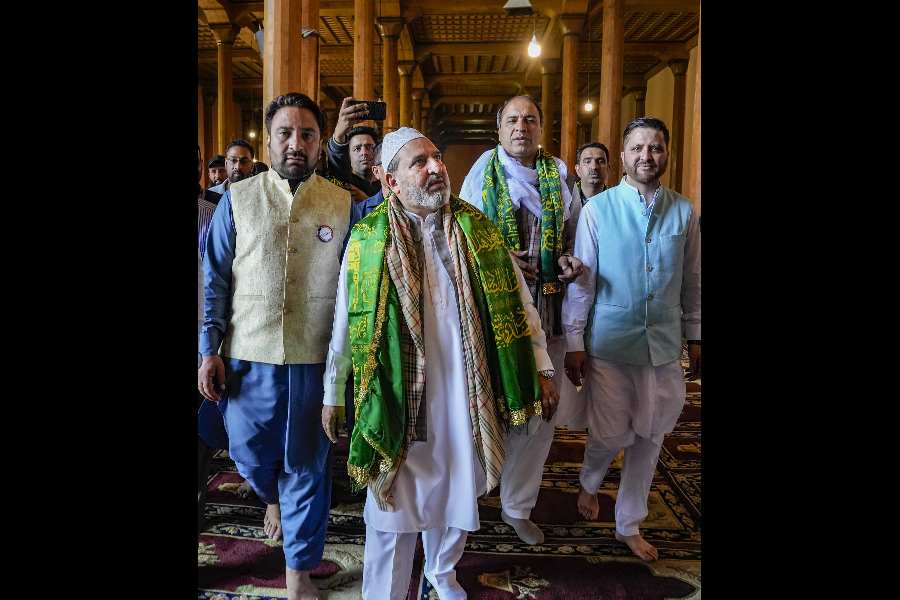Apni Party chief Altaf Bukhari on Monday became the first pro-India politician in decades to enter Jamia Masjid, the Valley’s biggest separatist platform, apparently with an eye on votes.
Bukhari, a leader widely believed to have been propped by the BJP to normalise
the changes following the scrapping of the special status in 2019, was leading a road show for his party candidate Mohammad Ashraf Mir from the Srinagar Lok Sabha seat.
The BJP has opted out of the Valley contest and is believed to be supporting Apni Party candidates in the Srinagar and Anantnag seats and the Peoples Conference candidate in Baramulla.
Pro-India politicians have not been welcomed at Jamia after the inception of militancy, their fears of a backlash holding them back.
The dramatic developments after 2019 have pushed separatists into a shell, offering the backdrop to Bukhari’s outreach.
Jamia Masjid and the area surrounding it is a stronghold of moderate Hurriyat chairman Mirwaiz Umar Farooq, who has spent most of the last five years in house arrest. The mosque has been sealed on countless occasions, sometimes for months, to prevent large gatherings.
Speaking to reporters, Bukhari said his visit to Jamia should not be considered a political activity.
“I have come to pay obeisance at the historic Jamia Masjid. This Masjid will remain here until the Day of Qayamat (last day). We pledge to uphold the truth for as long as we live in this revered place,” he said.
Bukhari batted for Umar, saying his stature as a religious preacher was higher than any of the political leaders in Jammu and Kashmir.
He said Umar never favoured bloodshed. “I think Mirwaiz never believed in violence. It was a baseless narrative. Bloodshed has never brought happiness. His family has suffered violence since 1947,” he said.
Umar’s father Mohammad Farooq, also a Mirwaiz, was killed by Hizbul Mujahideen militants in 1990.











